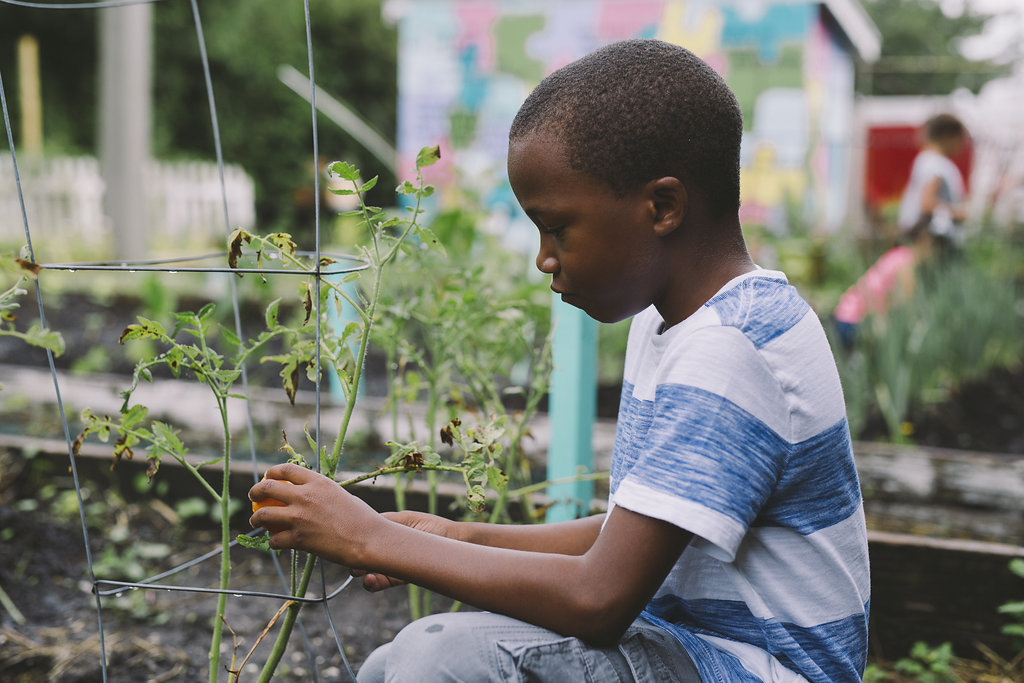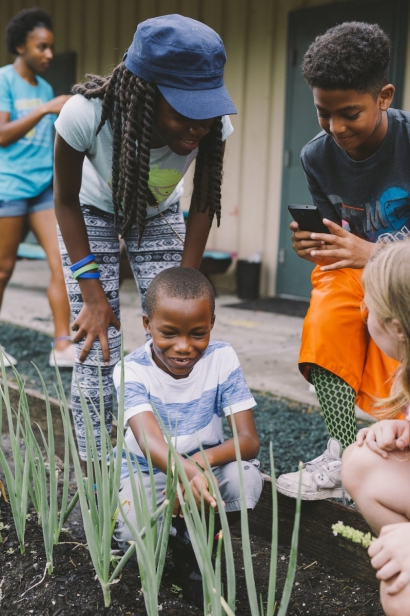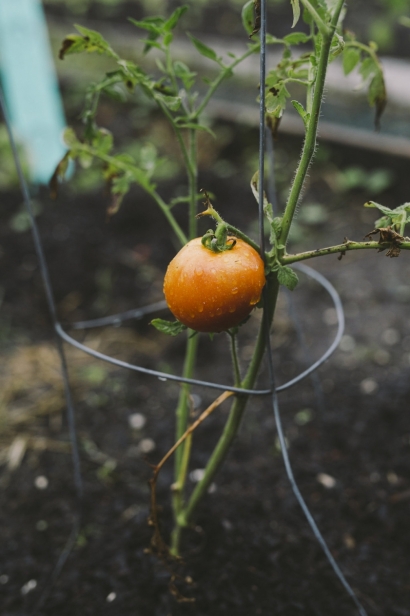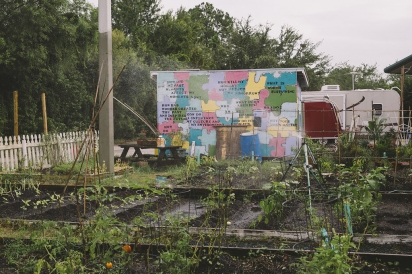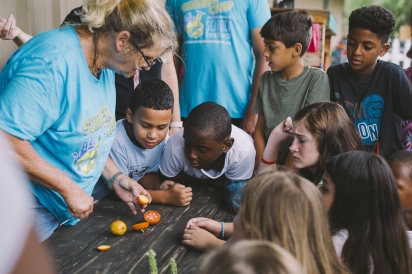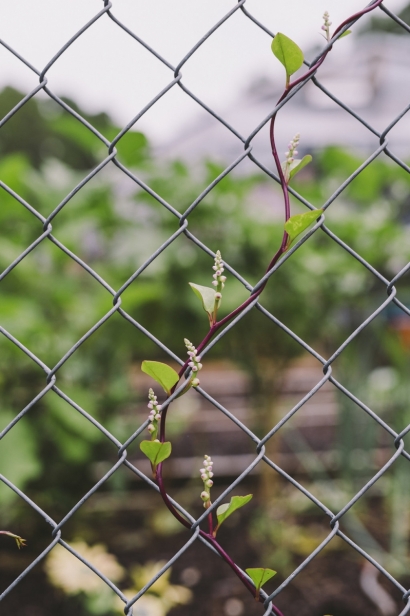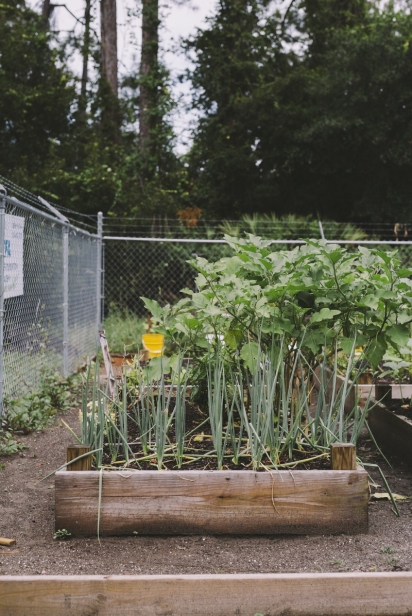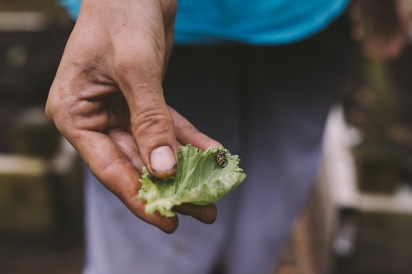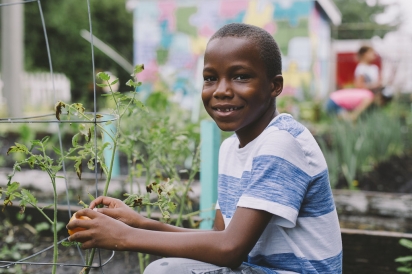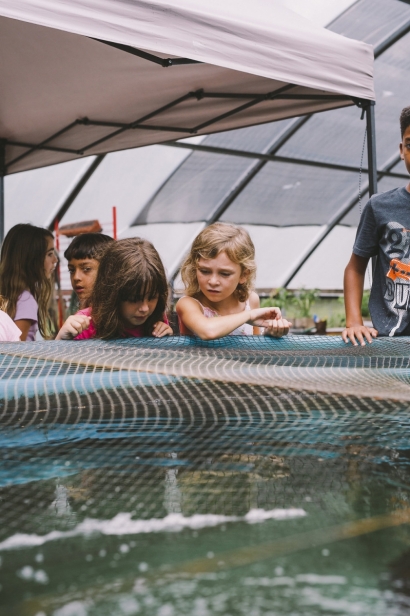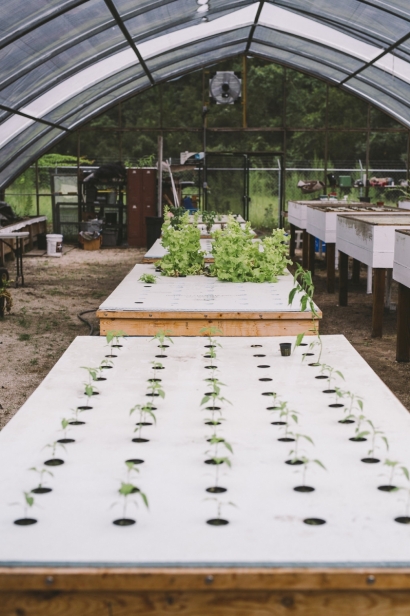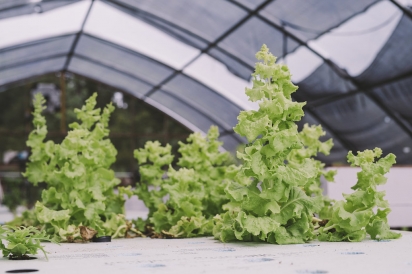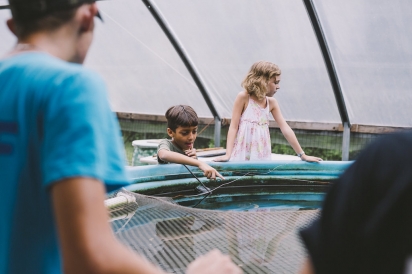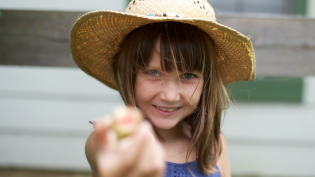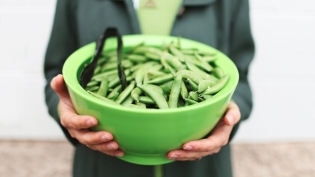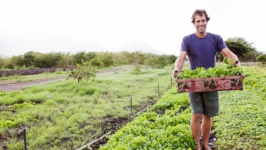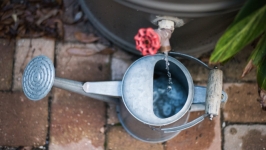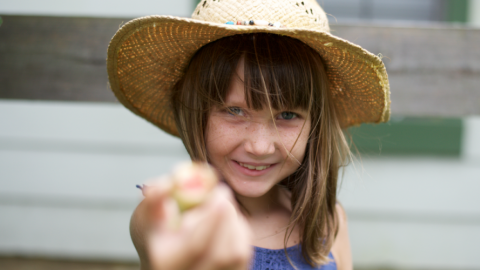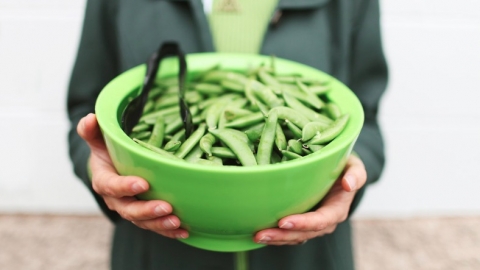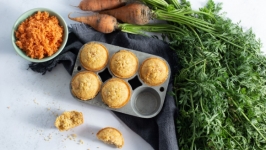Reclaim the Terrain
During both World Wars, citizens in America and other countries were encouraged to grow their own food at home. These victory gardens were considered an act of patriotism, a way to build morale by reducing demand on the national food supply. By May 1943, there were 18 million victory gardens in the U.S., producing over one-third of the vegetables for the country. Once the war was over, however, gardening at home became less common, replaced by the accessibility of produce in grocery stores.
Over the past 10 years, there has been renewed interest in growing food at home or in community gardens. The National Gardening Association (NGA) reports an increase in participation among younger households, up 63 percent to 13 million since 2008, with one in three households growing some of their own food. This trend is visible locally as well, with community gardens scattered throughout the area and increased interest in the Master Gardener training available through the county extension offices.
A new program has launched to help those who love the idea of home gardens but are not quite sure where to start. Called “Fleet Farming of Riverside,” Melissa Beaudry brought the Orlando-based concept to Jacksonville after receiving a grant from the Public Trust of Florida. A homeowner donates his or her yard to be transformed into a volunteer-led garden or “farmlette.” The volunteers, or fleets, visit the farmlette every other weekend on bike rides known as "swarms." The crops are on a drip irrigation system enabling low day-today maintenance.
“The homeowners don’t have to do any work, but we’ve found that the majority of them do help and learn the process because they feel a sense of pride,” Beaudry said. Homeowners also get to keep half of the harvest, while the other half is sold to restaurants and markets. Jacksonville’s first fleet farmlette has done well and Beaudry has plans in the works to add more this fall. “We just need volunteers — we have people aged 7 to 70 that come out and help, and from all skillsets. Whatever you don’t know, we’ll teach you, and what you do know, we’ll put to work. Everyone has a spot,” Beaudry said.
Beaudry believes in the power of building community through gardens. “Community gardens help create identities in neighborhoods,” said Beaudry, adding “Jacksonville is so spread out that sometimes it loses a sense of identity.” She is also interested in preserving regional history specific to crops. The Riverside area was formerly home to citrus groves, and as a way to pay tribute to this, the first two swarm rides focused on citrus gleaning, harvesting unused oranges and other fruit.
Another encouraging step towards a more resilient food system is the growth in opportunities for children to learn how to grow food. To encourage interest in gardening and farming, some area schools are integrating agriculture into the curriculum. One example, The Foundation Academy, a Science Technology Engineering and Math (STEM) school, has multiple gardens on their campus, including a greenhouse complete with hydroponic and aquaponic irrigation systems. The main garden, called “The Big Farm,” started around seven years ago, and produce harvested is sold at the Riverside Arts Market (RAM) on Saturdays. “Everybody has a hand in the garden,” said Tina Woolverton, who coordinates the harvest for RAM each week.
In addition to The Big Farm, each class has its own garden outside of the classroom. Teachers are using this opportunity to teach traditional subjects through gardening. Students learn biology from studying bugs and beneficial insects like butterflies. One member of the garden staff, “Miss Honey,” maintains a beehive and teaches the kids about bees. Along with understanding nutrition through the different fruits and vegetables they grow, the students also gain awareness by the food waste they put into compost bins.
“We’ve noticed a lot more children bringing healthier lunches to school so that they have better items to add to the compost for better soil,” said Woolverton, adding, “some of the kids view it as a competition and bring backpacks full of orange peels in on Monday morning following a weekend. They also bug their parents for their used coffee grounds.” Compost has opened the door to discussions that lead the students to ask, “If we don’t want it in our compost, why would we put it in our bodies?”
Teachers get creative and use the garden to provide history lessons, explaining issues such as infectious diseases with the use of medicinal herbs and world history through different types of potatoes. Introduction to the periodic table comes by testing the pH levels of the soil to see what elements were needed. The teachers feel that making lessons personal for the students allows them to take ownership of their education and have fun while doing it. The Foundation Academy hopes to grow its gardens to one day self-sustain the school and have extra produce to continue selling at RAM and help families in need in the area.
Students enrolled in Raines High School Environmental Science and Culinary Arts programs are taking STEM one step further by adding agriculture. The STEAM Urban Agriculture project, under the direction of Wealth Watchers’ Comprehensive Rural Opportunities Program, offers hands-on classes in all aspects of the food system, from growing to preparing, and provides training opportunities for career development after graduation. The students are growing greens, herbs, peppers, tomatoes and other vegetables in raised beds. They hosted a Harvest Day in May as an opportunity to give back to the community.
Kiana Harper, Outreach Specialist with Wealth Watchers, oversees the project, and can see the students’ enthusiasm as they learn about the correlation agriculture has to science, technology, engineering and math. “After the students toured four different types of area farms, they were eager to take the information back and put it into practice,” she said. By working with a local farmer, Caria Hawkins of Abundant Harvest in Glen St. Mary, the students get exposure to agricultural careers they can pursue in the future.
Helping students learn about agriculture and career opportunities is a core mission at the Center for Sustainable Agriculture Excellence and Conservation (CSAEC). The local non-profit recently partnered with West Nassau High School to start a biotechnical agricultural program exploring the future of farming and the techniques associated with sustainable agriculture. CSAEC Executive Director Angela TenBroeck is working with area farmers to develop various programs designed to train students on needed skills. “If we don’t encourage kids to be farmers, we won’t have food security,” TenBroeck said.
Educating students on all aspects of growing food is a critical undertaking in our society. A recent report shows high demand for college graduates with a degree in agricultural programs. According to data from the U.S. Department of Agriculture and Purdue University, nearly 60,000 high-skilled agricultural and related job openings are expected annually in the U.S. over the next five years. With only about 35,000 students in food, agriculture, renewable resources or the environment graduating each year to fill these jobs, time is of the essence to demonstrate the importance of relearning the lost skill of growing food.


